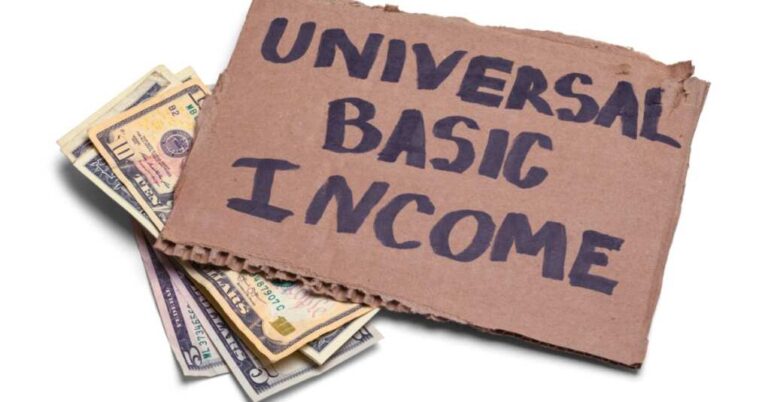
Let’s take a moment to appreciate the latest idea from the minds of our nation’s bureaucratic elite: universal basic income, or something very close to it. Sixteen states are now running pilot programs that hand out free money to select residents with no strings attached. It’s not quite the utopia the progressives dream of yet, but it’s certainly a step in that direction. The idea is simple: the government gives you money, and you spend it however you like. What could possibly go wrong?
The proponents of these programs argue that it’s a safety net for struggling families, a way to address income inequality and lift people out of poverty. It all sounds very noble, doesn’t it? But let’s not kid ourselves about what this really is: an experiment in dependence. The government hands out money, and suddenly they’re not just your tax collector—they’re your landlord, your boss, and your safety blanket all rolled into one. Who’s really in charge then?
The appeal of universal basic income is obvious. Who wouldn’t want free money? But there’s no such thing as free in this world. That money doesn’t come from a magic government piggy bank—it comes from you, the taxpayer. It’s a redistribution of wealth, plain and simple. And the more money the government hands out, the more they have to take from hardworking Americans to keep the system running. That’s not generosity—it’s a cycle of dependency that punishes success and rewards stagnation.
Let’s look at these state-run programs. Sixteen states are offering monthly cash payments to a select group of residents, typically low-income households. The recipients say they use the money for necessities like housing, groceries, and childcare. That’s all well and good, but let’s not pretend this is a sustainable model for the entire country. These programs are funded by private donations, grants, and temporary government funds. They’re experiments, not policy. If universal basic income ever became a nationwide reality, guess who would be footing the bill? That’s right—you.
And while we’re at it, let’s talk about the incentive structure here. What happens when people start relying on these payments instead of working to improve their situations? Human nature is pretty predictable. If you know you can count on a check every month, where’s the urgency to find a better job, build new skills, or strive for something greater? Universal basic income doesn’t just redistribute wealth—it redistributes ambition, and not in a good way.
The irony, of course, is that these programs are being touted as solutions to income inequality, but they don’t address the root causes of poverty. Handing someone a check doesn’t fix broken schools, create better jobs, or make housing more affordable. It’s a Band-Aid on a gaping wound, a feel-good measure that allows politicians to pat themselves on the back while avoiding the real work of governing.
And let’s not ignore the political implications. Universal basic income isn’t just about economics—it’s about power. When the government controls your paycheck, they control you. They can attach conditions, impose rules, and decide who’s worthy of help and who isn’t. It’s a slippery slope from there to a society where the government decides how you live your life. If that doesn’t make you uneasy, it should.
So, what’s the alternative? How do we help struggling families without creating a culture of dependency? The answer isn’t more handouts—it’s more opportunity. Better schools, fewer regulations, and policies that encourage job creation instead of stifling it. It’s about empowering people to succeed on their own terms, not trapping them in a system where they’re forever dependent on the generosity of politicians.
Universal basic income might sound like a utopian dream, but it’s a dangerous one. It’s a promise of something for nothing, a siren song that ignores the realities of human nature and economics. If we’re not careful, it could lead us down a path where freedom and self-reliance are replaced by dependence and control. And once we go down that road, it’s hard to turn back.
So let’s think twice before we embrace the idea of universal basic income. It might seem like a quick fix, but the long-term costs—financial, social, and political—are far too high. America is built on the idea that anyone can succeed with hard work and determination. Let’s not trade that for a government check and a false sense of security. We can do better—because we have to.





